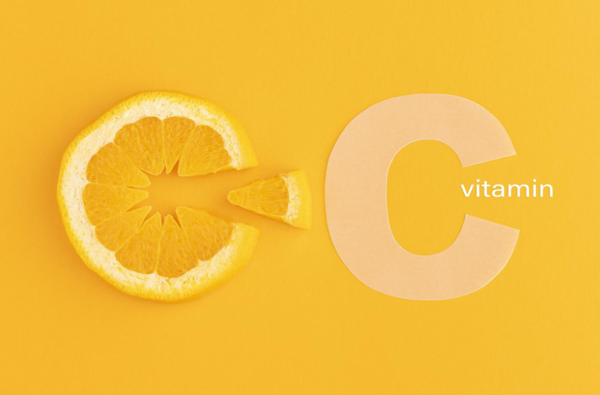There is no doubt that Vitamin C is good for boosting your immunity. But there are many other ways in which Vitamin C benefits the health. From boosting collagen production, healing wounds, taking care of your skin, bones, and gums to improving overall energy. But unfortunately, when it comes to vitamin C, the only thing we think about is immunity.
are many other ways in which Vitamin C benefits the health. From boosting collagen production, healing wounds, taking care of your skin, bones, and gums to improving overall energy. But unfortunately, when it comes to vitamin C, the only thing we think about is immunity.
While these are facts, there are myths about this essential nutrient that are also very common. So here are some myths and fun facts about this common vitamin:
MYTH: Vitamin C is only beneficial for boosting immunity
FACT: There is no doubt that Vitamin C is essential for boosting your immunity. But, there are other important things that vitamin C does. From boosting collagen production, healing wounds, taking care of your skin, bones, and gums to improving overall energy. However, unfortunately, most of us relate this micronutrient to only immunity.
Vitamin C is crucial when it comes to keeping us energetic and feeling alert as it is an essential ingredient in the production of hormones like cortisol and adrenaline, which play an instrumental role in producing energy and bringing about a healthy nervous and immune system. It regenerates collagen in bones, joints, and the face.
Vitamin C is also one of the most potent antioxidants, which helps to fight free radicals that cause inflammation and chronic diseases.
It plays a major role in wound healing as it regenerates collagen in the  skin and other tissues.
skin and other tissues.
Vitamin C is also an essential co-factor for collagen production, so a healthy intake will keep your skin elastic, smooth, and luminous with a more youthful appearance.
Adequate vitamin C also helps weight loss as it affects the body's ability to use fat as a fuel source during both exercise and at rest. Vitamin C also improves cardiovascular health by lowering blood pressure and cholesterol level. It also helps to keep blood vessels elastic.
MYTH: Vitamin C Wards Off Cold and Flu.
FACT: Studies on ‘’Vitamin C to fight against cold and Flu’’ shows that people who regularly take Vitamin C + Zinc supplements may have a shorter duration of colds with milder symptoms, but it does not reduce the risk of catching a common cold. However, a 2013 meta-study suggests that vitamin C and Zinc supplements reduce the duration of colds in the general population. Participants in each study supplemented vitamin C for varying periods, but generally, the daily dose was at least 200mg/day. So the bottom line is - Aim for a preventive dose of 200- 500mg daily as soon as you start to feel run down.
MYTH: The More Vitamin C, The Better
FACT: Many studies have shown that higher doses of vitamin C are beneficial. Anything up to 500mg a day will be absorbed and tolerated by the body.
However, any surplus (more than 1000mg/day) will be lost in urine because vitamin C is water-soluble. Hence, there are no really dangerous side effects from taking too much vitamin C- only mild flatulence and occasionally diarrhea.
MYTH: Our Body Can Store Vitamin C, hence, it does not need to be taken on a daily basis.
FACT: Being a water-soluble nutrient, Vitamin C cannot be stored in the body.  Any surplus quantity (more than required) will be lost in urine so it is almost impossible to overload your system with vitamin C. If you do happen to consume too much Vitamin C at once, you will just let it out of your system by urination. Hence it is essential to get your dose of vitamin C every day through diet or supplement. This also means that you cannot take a mega-dose of this vitamin once a week or month and expect it to have a residual effect. You will have to take it every single day to see the beneficial effects.
Any surplus quantity (more than required) will be lost in urine so it is almost impossible to overload your system with vitamin C. If you do happen to consume too much Vitamin C at once, you will just let it out of your system by urination. Hence it is essential to get your dose of vitamin C every day through diet or supplement. This also means that you cannot take a mega-dose of this vitamin once a week or month and expect it to have a residual effect. You will have to take it every single day to see the beneficial effects.
MYTH: We Can Produce Vitamin C
FACT: Sadly, somehow, during evolution, we lost one of the four vital enzymes needed to produce vitamin C. This means we have to get vitamin C from diet or supplement to get this essential nutrient for body functioning. Make sure you are getting enough of it from diet whether from vitamin C rich food sources or via a multivitamin or Vitamin C supplement.
MYTH: Citrus Fruit Is the Best Source of Vitamin C
FACT: Contrary to popular belief, citrus fruits like oranges, lime, etc. are actually not the richest source of vitamin C. Some rich sources of the nutrient are green chili, peppers, kale, broccoli, Brussels sprouts, watercress, kiwi and red cabbage. So include a wide variety of fresh fruits and green vegetables, for a supercharged immune boost.
MYTH: We all need the same recommended amount of Vitamin C
FACT: Vitamin C recommended intake depends on many factors such as your age, sex, state of health, and smoking status. For instance, Smoking causes the body to excrete more vitamin C than usual, so smokers need to up their intake by 35mg/day than a non-smoker.
MYTH: All Vitamin C Supplements Were Created Equal
FACT: Supplements are one way to get a daily dose of vitamin C. There are whole-food-based natural vitamin C supplements, which are much superior to their synthetic counterpart. Because synthetic vitamin C supplements  have lower bioavailability than whole foods, it means you cannot absorb them nearly as well. Conversely, real vitamin C is found in real natural whole foods, accompanied by a complex of many other naturally occurring phytonutrients. As such, the body’s vitamin C requirements are best met from foods rich in this nutrient.
have lower bioavailability than whole foods, it means you cannot absorb them nearly as well. Conversely, real vitamin C is found in real natural whole foods, accompanied by a complex of many other naturally occurring phytonutrients. As such, the body’s vitamin C requirements are best met from foods rich in this nutrient.
Frequently Asked Questions (FAQ)
Here are some of the most frequently asked questions about multivitamin supplements that you may want to know about. Read on.
- What vitamins/supplements should people be taking?
We use the term dietary supplement as an umbrella label for everything from vitamins and minerals to antioxidants that we need to take in order to meet our nutritional requirements. It can be used to mean an individual vitamin or mineral preparation or a multivitamin (a product that contains a combination of vitamins, amino acids, fatty acids, herbs and minerals). If your food doesn't help your daily nutritional requirements, then you will need a daily multivitamin to help you do so.
But you may wonder with so many vitamin and mineral combinations, how do we know exactly what to look for when looking for a multivitamin. Your multivitamin should essentially contain vitamin D, magnesium, calcium, zinc, folate, iron, vitamin C, and vitamin B12. It could have other combinations of micronutrients as well. Wellbeing Nutrition's Daily Greens contains multivitamins from 39 farm-fresh greens, veggies, fruits and anti-oxidant rich superfoods.
- Do vitamin supplements and multivitamins actually work?
People usually take a multivitamin, when they know their food doesn't provide them with their nutritional requirements. Incorporating multivitamins to their diet, people take a step towards bettering their health. Considering a multivitamin as part of a healthy lifestyle is a great idea as it helps to bolster the immunity that protects us from different infectious diseases. Moreover, it slows down aging and keeps the skin and hair healthy. It also helps us build our energy levels, among other things. So if you suspect that your diet is nutritionally lax, make multivitamin supplements a part of your daily healthy lifestyle.
- Will I be okay if I take several vitamins daily?
There are people who think they can take as much vitamins and minerals they want in a day without fearing any side effects. But they need to be taken as per their daily dosage. For most vitamins, the upper limit is 1000-2000 mg a day. If you take more than that, it could put you at a risk of developing kidney stones or gut related issues such as diarrhea. It is therefore best to consult a doctor about the dosage before getting onto supplements.
- What happens if you take supplement pills that are past their expiry?
Vitamins or supplements don't become toxic or poisonous after their expiration date, unlike food. There have been no documented cases of health issues or death that have been caused due to consuming supplement pills post their expiry date. When it comes to vitamins and dietary supplements, expiration dates are put in place only to ensure that consumers benefit out of using quality products. The potency of these pills will reduce post their expiration date. That is why, ideally, it is best to consume them before their expiry date to get maximum health benefits out of them.
- Are there any vitamin supplements for the skin?
Ensuring that you get your daily vitamins as per the recommended dosage will help your skin appear healthy, supple and youthful. The vitamins and minerals that are best for skin include vitamin A, C, D, E, K and zinc. Out of these, vitamin C is the most essential one as it helps to stimulate collagen that helps in the production of collagen, a connective tissue that helps keep your skin looking firm. When taken together, all these micronutrients help to slow down aging.
Final Takeaway
Vitamin C benefits the health in many ways, right from boosting the immunity, producing collagen, maintaining the health of bones, muscles and cartilage, and absorbing the iron, among other things. If your food doesn't meet your daily vitamin C requirements, supplement your diet with multivitamins. Based on whole food Nutrition, Our DAILY-GREENS™ is made up of 39 organic fruits and green veggies. It’s one effervescent tablet, provides you 400mg vitamin C in its best bioavailable form, so that you don’t have to compromise on your daily nutrition.
References:
- Vitamin C, Alexander J. Michels and Balz Frei, Advances in Nutrition, 2014, doi: 10.3945/an.113.005157, (https://www.ncbi.nlm.nih.gov/pmc/articles/PMC3884093/)
- Vitamin C in Disease Prevention and Cure: An Overview, Shailja Chambial, Shailendra Dwivedi, Kamla Kant Shukla, Placheril J. John, and Praveen Sharma, Indian Journal of Chemical Biochemistry, 2013, doi: 10.1007/s12291-013-0375-3, (https://www.ncbi.nlm.nih.gov/pmc/articles/PMC3783921/)
- The effectiveness of vitamin C in preventing and relieving the symptoms of virus-induced respiratory infections, H C Gorton, K Jarvis, Journal of Manipulative and Physiological Therapeutics, 1999, DOI: 10.1016/s0161-4754(99)70005-9, (https://pubmed.ncbi.nlm.nih.gov/10543583/)
- Vitamin C: Overview and Update, Amanda K. Schlueter, MS1 and Carol S. Johnston, Journal of Evidence-Based Complementary & Alternative Medicine, doi: 10.1177/1533210110392951, (https://journals.sagepub.com/doi/pdf/10.1177/1533210110392951)
- Water Soluble Vitamins, Diet and Health: Implications for Reducing Chronic Disease Risk. (https://www.ncbi.nlm.nih.gov/books/NBK218756/)
- Vitamins and Mineral Supplements: Do We Really Need Them?, Farin Kamangar and Ashkan Emadi, International Journal of Preventive Medicine, 2012, (https://www.ncbi.nlm.nih.gov/pmc/articles/PMC3309636/)
- The Roles of Vitamin C in Skin Health, Juliet M. Pullar, Anitra C. Carr, and Margreet C. M. Vissers, Nutrients Journal, 2017, (https://www.ncbi.nlm.nih.gov/pmc/articles/PMC5579659/)

























